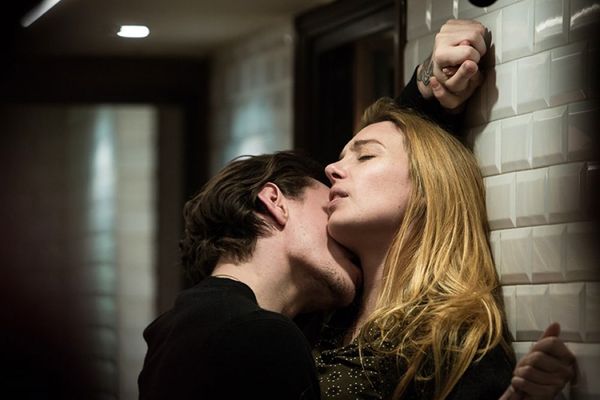Eye For Film >> Movies >> Simple Passion (2020) Film Review
Simple Passion
Reviewed by: Amber Wilkinson

There's passion aplenty in French-Lebanese director Danielle Arbid's latest but she joins a rich catalogue of French filmmakers - most notably Catherine Breillat - who point out that, no matter how romance starts, it's never that simple in the end. Which is not to say that single mum Hélène (Laetitia Dosch) doesn't think it will be. After all, although she's hooking up with younger married Russian Alexandre (Sergei Polunin) for hot and heavy sex on the afternoons when he calls her, she tells him she doesn't want any more than he is offering. "You're in love with love itself," her friend says - although Arbid shows us that it's the sexual rush, in particular, that thrills. We might see Hélène and Alexandre engaged in brief pre or post-coital conversation but it is inconsequential, suggesting that if they went on an actual date the chat would soon dry up.
Arbid's film is based on Annie Ernaux's autofiction novel and retains the author's female gaze. There's not much substance to Alexandre beyond a finely tuned body (Polunin is a ballet dancer by trade) and deep desire but that allows Arbid to focus all our attention on Hélène and the way that all of her attention starts to be on him. The director shoots the sex scenes with a racy frankness that captures lust in the moment - from kitchen table to bedroom. Although nakedness is shown with general equality, the film camera lingers on Alexandre's tattooed torso, both when the pair are together and when we join Hélène in her increasing day dreams about him, her compartmentalised world slowly beginning to slip into obsession. The director carefully shows the creep of this in Hélène's interactions with her son Paul (Lou-Teymour Thion, a brief but significant presence), who finds himself increasingly - potentially dangerously - pushed to the periphery.
Dosch is in her element here, bringing depth to every glance, captured by Pascal Granale not just in the thrust of sex but in more impressionistic interludes, when we see Hélène reflected in windows, her face dappled by trees. These subtle and expressive moments sit more easily within the film than its sudden lurches towards the schmaltzy end of the romance jukebox in montage scenes that use everything from Charles Bercaud's bouncy take on Charles Aznavor's Love Is Wonderful to the Flying Pickets a capella Only You. The scenes these songs flow over are often well put together - including the sheer amount of effort that can go into 'looking casual' at just the right moment - but the music gums them up with sugar, when Dosch's face is all we need.
Does all of this add up to the truth about love? Perhaps not, but it is certainly a truth and, most importantly, it stays true to its central character in all her complexity.
Reviewed on: 01 Oct 2020

















